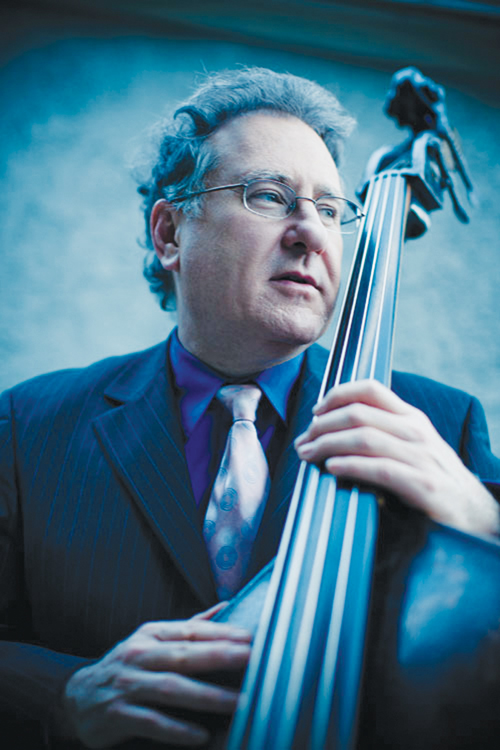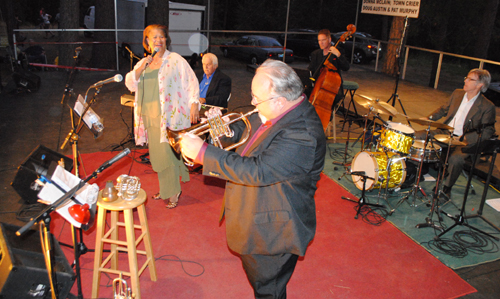Bromberg blends smooth and straight-ahead

Brian Bromberg, headliner for the 19th Jazz in the Pines, has taken bass playing where no player has gone before, firmly establishing it as a melody instrument. He credits an epiphany that came early in his career with allowing him to find his musical calling and path.
“I started playing drums as a kid,” he said. “My father and brother played drums. Playing drums felt natural. I had no desire to play bass. But my parents thought I should play another instrument so I started cello in junior high. I never connected with it. I was terrible.” Then his orchestra teacher told him that there was this bass that no one was playing and why didn’t he give it a try.
“It became a natural for me because of my rhythm as a drummer. I never thought I had a melodic sense, but the fit was almost immediate,” Bromberg said. “I started playing the bass two-handed. I didn’t know any better, playing drums on the bass, and developing a melodic concept.”
The next step was when he found the particular instrument that perfectly clicked with him, the piccolo bass. “It forces you to play melody.”
Bromberg’s entry into the professional jazz scene came early. Marc Johnson, bassist with jazz great pianist Bill Evans, had heard Bromberg play at a gig. Months later Stan Getz was looking for a new bass player. Johnson told him about Bromberg. Bromberg auditioned and in December 1979, at age 19, Bromberg joined the Stan Getz quintet and toured internationally with him for a year.
After Getz, Bromberg returned to his native Tucson, Arizona and began experimenting with various basses, including the piccolo and an eight-string bass tuned in octaves. “I wondered what would happen if I took the lower strings off [of the eight-string bass],” he remembered. “That’s when I started writing music and developing my melodic sense. It completely changed my life. With each consecutive year, I was weaving my way from bass playing sounds to a different approach with melody at the core. The piccolo bass shaped me.”
Bromberg said he still tries to play melodically and tell stories in his solos in all the different styles and forms in which he has recorded. He recorded a Jimi Hendrix tribute, in which there is not a single guitar, just his bass lines sounding the melodies. His smooth jazz hits span so many different musical genres from Jobim and Brazilian bossa nova to straight-ahead jazz produced in pop fashion that he sometimes worries he has no identifiable voice. “My last eight records had eight different sounds,” he said. “My voice is all of it. It’s the journey. I never make the same record twice.”
Bromberg is enthusiastic when talking about continuing to embrace new challenges each year, even though he is already a famous and well-established artist. “Putting yourself outside your comfort zone and going to a place you normally wouldn’t go is a pretty amazing thing,” he said. “Sometimes it’s a bitch. But you find the balance. I’m very proud that I’m still changing. I hear growth with each project and that’s important. Sometimes I feel I’m just a bass player. And sometimes I feel that I’m an artist with something to say.”
Bromberg also believes strongly in sharing what he’s learned with younger artists, encouraging their growth, taking them into the family of jazz and applauding their dreams. “You never want to break a young person’s spirit. You never write somebody off. I know what it’s like to be kicked off stages. Music does not have to be about competition. It should be about fun.”
And fun is what Brian Bromberg brings on Sunday, Aug. 26 at the Holmes Amphitheater. With Bromberg are Grammy nominee Tom Zink on piano, Gary Meek on sax, Marvin Smitty Smith on drums and a five-piece horn section.





